Matt Berry on his new box set ‘Gather Up’
Read the SDE interview
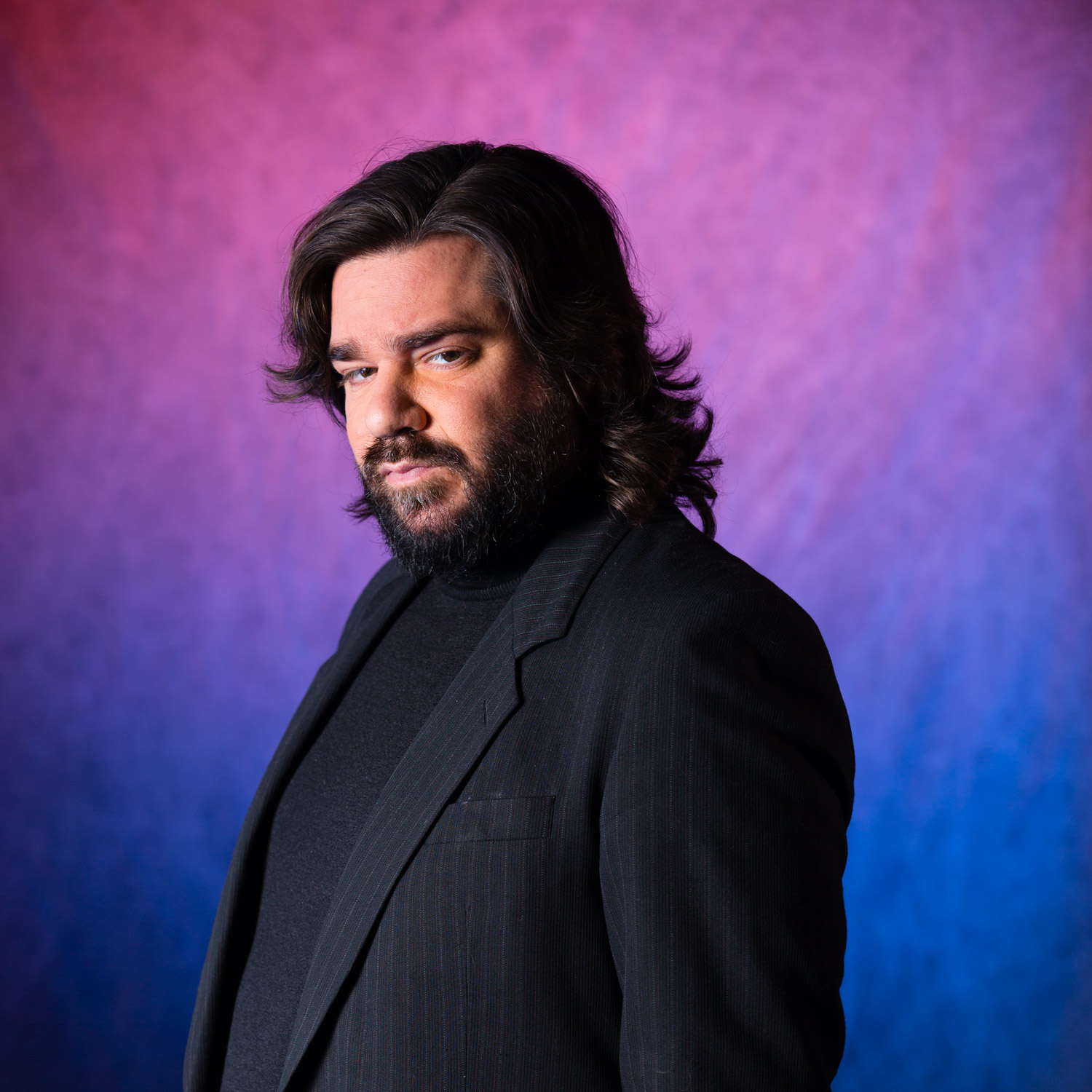
SDE recently caught up with musician Matt Berry whose ten years with the Acid Jazz label is about to be celebrated with a new music box set called Gather Up. When Matt isn’t making music he’s a comic actor. He’s currently busy filming a new series of Jemaine Clement and Taika Waititi’s What We Do In The Shadows.
Whose idea was the Gather Up box? Did Acid Jazz approach you, or did you think it was time to take a break from actually recording a proper album to look back over your archive?
Matt Berry: No, no. I’d never do that. I’m never really interested in looking back over stuff. I’ve only ever want to do the next thing. No, it came from the label. We realised that I done 10 years, which was the end of my contract. And it was [a case of] “do you want to sign another one and if you do, we should do something to commemorate that”. I think it started off just being a seven-inch [single], a 10th anniversary seven-inch, and then they said, “why don’t we do a 10 year collection?”. And then I just had to hand everything over to them, because that’s what they’re good at.
With this box, you’ve got a ‘best of’ at the beginning and after that it offers rarities from the archive. How do you know what your best songs are or what your fans might want to hear?
Well, I don’t. I don’t know what my best songs are, and I don’t think I’m the one to make that choice. That’s down to the label, [to decide] which ones would represent what I’ve done the best, because I’m just too in the middle of it, I think.
Are you a fan of greatest hits, in general, because some people are a bit snobby about them? Obviously there’s been some great ones over the years like Leonard Cohen or The Doors…
Exactly. I don’t care anymore. I don’t care about any kind of snobbery within music, to be honest with you. I don’t have any interest in that. Yeah, like you said, some people’s first introduction to a band was through a best of. And then a successful introduction, would be like, for instance, The Beatles, ‘red’ and ‘blue’ albums [1962-1966 and 1967-1970, respectively] and like you say, The Doors… These are just as important to a lot of people as regular albums, so yeah, I’ve got no snobbery when it comes to ‘best ofs’.
‘Take My Hand’, is by far your most listened to track on Spotify, and I guess that just shows the power of the TV audience more than anything else [‘Take My Hand’ is used as the theme to Matt’s TV comedy show Toast of London]
Yeah, I guess. I mean, it’s also one of the oldest songs. So it’s been around the longest.
You said your contract was up. Presumably you’ve re-signed?
Yeah. I mean, that was the reason for the celebration, in terms of going forward for another 10 years and it’s ended up being a ‘best of’.
How do you look back on all the albums you’ve recorded with Acid Jazz. With the distance, you can look back and maybe see pathways and things that weren’t clear at the time when you were knee deep in the middle of recording your third record, or whatever.
Yeah, I mean, I don’t tend to look back, very often, if I’m honest – if at all. The only times I look back, will be to work out why something didn’t work. Or to correct things, or try to correct things; exploring why I didn’t achieve what I had in my head.
But this project must have forced you to look back a little bit, because even though you said you left it to the label you must have personally gone through some of your outtakes in your archives.
I did. But it was made easy, because we’d already talked about doing a deluxe of Witchazel, which is the first album I’d released with them, so had already been told to go through all the Witchazel outtakes, to find anything that was interesting. So I’d already done that. That was half the work done, because there was a lot of other things that were recorded around that time. So, I just included some of that but all the other stuff, like books etc… that was done by the label and done by Ben the photographer, who’s been around since the start. He’s got everything. I don’t keep anything. I don’t keep any photographs from back when. So, it could only have come from him, because he does kept everything. He’s the one who took all the photographs, so he was the best person for that job.
Why don’t you keep things?
It’s nothing to do with negativity or positivity, it’s because I’m not that interested. I’m far more interested in what I’m going to be doing next. Once something is done for me then it’s done and I’ve reached the end of that particular thing. And then it’s all about having the enthusiasm to start the next thing. It isn’t through not wanting to look back or anything. It’s just once I’m done, I’m done. I’m kind of enthused by looking forward.
Of all the albums that you’ve recorded, which do you think has successfully managed to deliver the vision in your head when you started out making it?
Well, there’s a couple, I would say, possibly Kill the Wolf and The Blue Elephant. They sounded exactly like I had in my head, pretty much. I was also pleased with Phantom Birds. I knew exactly what I didn’t want to do with that album. But yeah, I would say those two: Kill the Wolf and The Blue Elephant.
And is that the yardstick by which you measure the success of a record?
I don’t even think about the success of it. I’m not that interested in that, it’s all about – and this sounds kind of wanky, but again, I don’t care anymore – it’s all about the artistic intent, and whether I managed to nail it or not, or even if I managed to get near it. That is all that I’m interested in. And to be fair, that’s all that the label are interested in, to an extent. Obviously, they’re interested in selling, more than I am, but they’re still proper music fans, and they want a decent album.
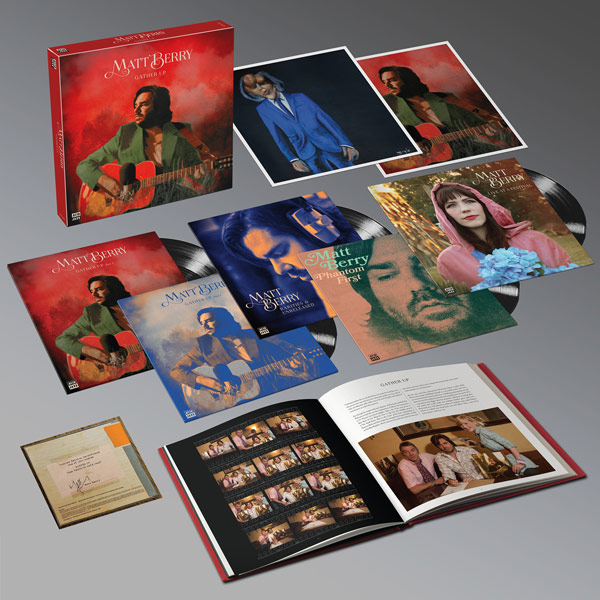
How’s that relationship been? Has anything changed much in a decade? You’ve become a bigger name, I guess, in terms of the acting side of things, but you seem to get a lot of pleasure being on a label like Acid Jazz.
Acid Jazz was a label that I looked up to, a lot, as a kid. I’ve said this a load of times, but, you know, when I, when I was a student, and when I was in my late teens and early 20s, you couldn’t get Hammond Organ music, unless you went around charity shops. It wasn’t until Acid Jazz did their compilations that I managed to get all this stuff. So they were a huge label for me, when I was growing up, because it was the fastest way to get to the kind of stuff that I love: 60s Mod… all this kind of shit, that I was into. They also had original acts doing that kind of thing as well, so they were an all round kind of label that I was into as a kid.
You mentioned the Phantom Birds album. That’s spotlighted quite significantly on this box set, isn’t it, because you’ve got a whole disc of demos and different versions? Tell us a little bit about that. It rather suggests that a) there was a lot of stuff recorded for that record and b) that you were trying to go in a certain direction and maybe avoid other directions?
Yeah, that’s exactly it. I mean, what I’d done up until then, largely, was just fill every track [on a song] with as many as many tracks, or stems, as I wanted to, because that was the kind of thing, that is the kind of thing, that I’m into. I’m into banks of guitar parts and that kind of stuff. Heavy production and lots of production ideas. So it was a conscious decision to drop all that for Phantom Birds and keep it as simple as I could. It looks like I spent a lot of time on it [but] I didn’t, I demoed everything while filming and doing various things. And then when I came back, and I just re-recorded it all. I kept some vocals from the demos, but yeah, I just kind of did it again, properly.
So you do record demos most of the time, because I was wondering about your process…
For that album, [I did]. That’s the only album where I’ve done that, because it was such a departure; it was a different kind of discipline that I had there. I kept having to tell myself, “I don’t need a Mellotron here”, I just need to keep this as sparse as I can.
A couple of the tracks on the box set (‘Peter Cleopatra and the Windmill’ and ‘The Shot Rang Out in the Forest’), to me have a slightly more light hearted, borderline comedic type thing going on? When you write your music, do you have to consciously stop yourself from being silly?
No, because I don’t see it like that. It’s an unavoidable comparison to make, because of what I do. But there’s never any intention to be funny. I’m not interested in comedy songs. I never have been. It’s a genre that I couldn’t give a fuck about.
But what about the Paul McCartney thing on Witchazel [‘Paul McCartney’ – actually comic actor Peter Serafinowicz – sings backing vocals on ‘Rain Come Down’]? I mean, that’s got a comedy thing going on, hasn’t it?
No, not to me. It was just more of just “what would he sound like, if he was to come on [sing] the end of this song?” Like I say, the comparison is always made, because of what else I do.
Is that a bit of a frustration?
No, I don’t care anymore. I might have done in the early days, but I honestly couldn’t give a shit now, because it doesn’t make any difference to what I’m doing.
Are you comfortable letting people hear the demos and the kind of stuff that didn’t come out the first time around?
Only if it’s interesting. If I went in a different direction with it, or it’s something that is rare, that maybe didn’t come out because I’ve totally forgotten about it
It’s very interesting listening to ‘The Blue Elephant Alternative Intro’ that’s on one of the discs in this box set compared to ‘Aboard’, which became the finished version. ‘Aboard’ has a lighter, jazzier touch, and the original version had a slightly heavier guitar and a whole different feel. That’s quite an interesting insight into your decision-making process at the time.
Yeah. I mean, you’ve just got to balance stuff, you know. It’s just a sequencing thing, because the thing about that album is, it was designed just to be listened to in one go, rather than odd tracks, because they all dovetail into one another. So you’ve got to take these things into account when you’re putting one track in front of another.
Your Television Themes album is highly enjoyable. How much did you learn about the genius behind some of these themes from the ’70s? It must have been interesting having to break them down and re-record them.
It was fascinating. It was something that I’d wanted to do for a while, and Acid Jazz had actually done one during the 90s, or whenever; a film and TV themes album which Acid Jazz artists had recorded. And all we were going to do, basically, was add to that. I was going to do a couple for a re-release. The whole point, for me, was doing the themes that hadn’t been commercially released, the ones that you couldn’t get on vinyl. Things like, ‘Are You Being Served?’, ‘World in Action’, ‘Sorry’… Stuff that hadn’t come out. So that was the main aim, just to get those available. And then it was up to me, to be as faithful with them as I could. But the thing about those kinds of themes are, they’re only like 30 seconds long – if that. So, if I was just to do the actual themes that everyone knows, the album would have been like, eight minutes. So you know, I had to come up with these new bits, stuff in the middle, which was fun. Because you could do what you wanted there, and then come back to the theme again.
Well, that’s the classic thing with TV themes, because when they do get commercially released, they always have some weird sax break in the middle that you never heard on the TV version.
Yeah, exactly.
This is the end of a decade, you said you’ve re-signed to the label, so what are the next 10 years going to bring?
Me trying out other things, and seeing whether they work, basically, and doing stuff with others… I’ve just done a single with Emma Noble, so I want to do more of that kind of stuff. I think they’ll be a lot more collaboration.
Are you going to try and get out on the road next year?
Well, it’s possible. I mean, that would kind of depend on vampires [Matt was in the middle of filming What We Do In The Shadows when he spoke to SDE] and whether we can get out. I’d like to, because there’s at least two albums that I haven’t toured, so it would be good.
Have you got any specific plans as to what your next record might sound like?
A few ideas, and they’re, they’re sort of production ideas, more than anything else. I know what I want. There’s a certain specific thing that I want to try and get and work out how it’s done. I want to go back to folk, I think. But then sort of give it a bit of a twist.
Why didn’t the Witchazel deluxe happen, out of interest?
I think it will. This [box] comes first, but I didn’t put everything from the Witchazel deluxe on it, because there’s loads of stuff. So that will come out.
Matt Berry was talking to Paul Sinclair for SDE. The new box set, Gather Up, is released on 19 November 2021 on vinyl and CD.
Compare prices and pre-order
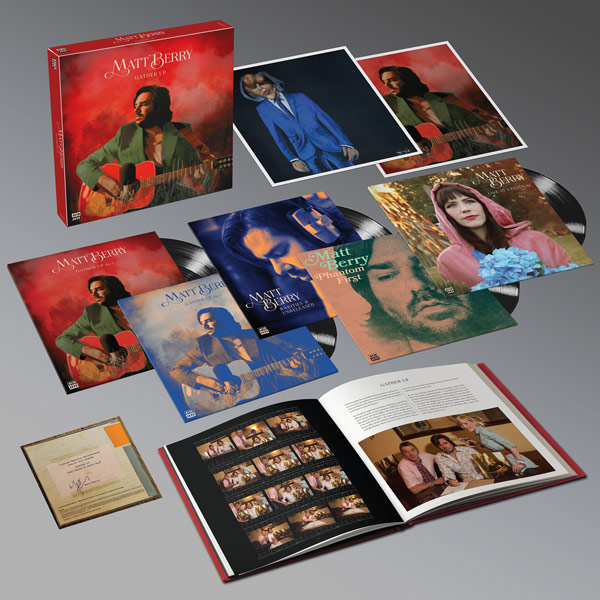
Matt Berry
Gather up - 5LP box set with signed certificate and book
Compare prices and pre-order
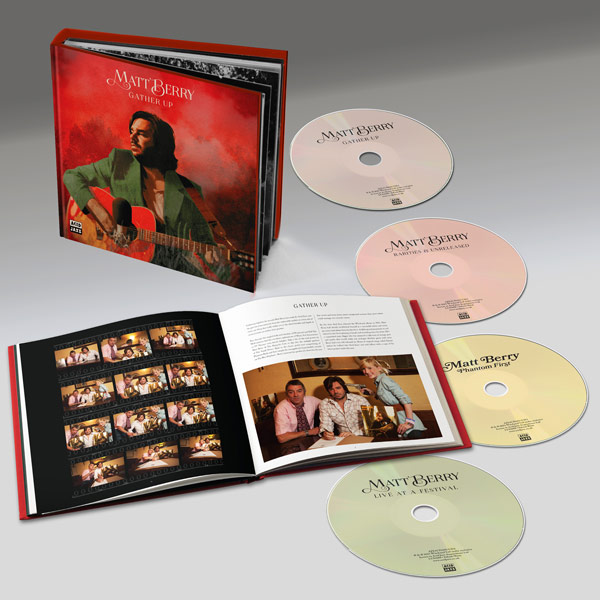
Matt Berry
Gather up - 4CD deluxe set

|
|
||||||||||||||||||||||||||||||||||||||||||||||||||||||||||||
Compare prices and pre-order
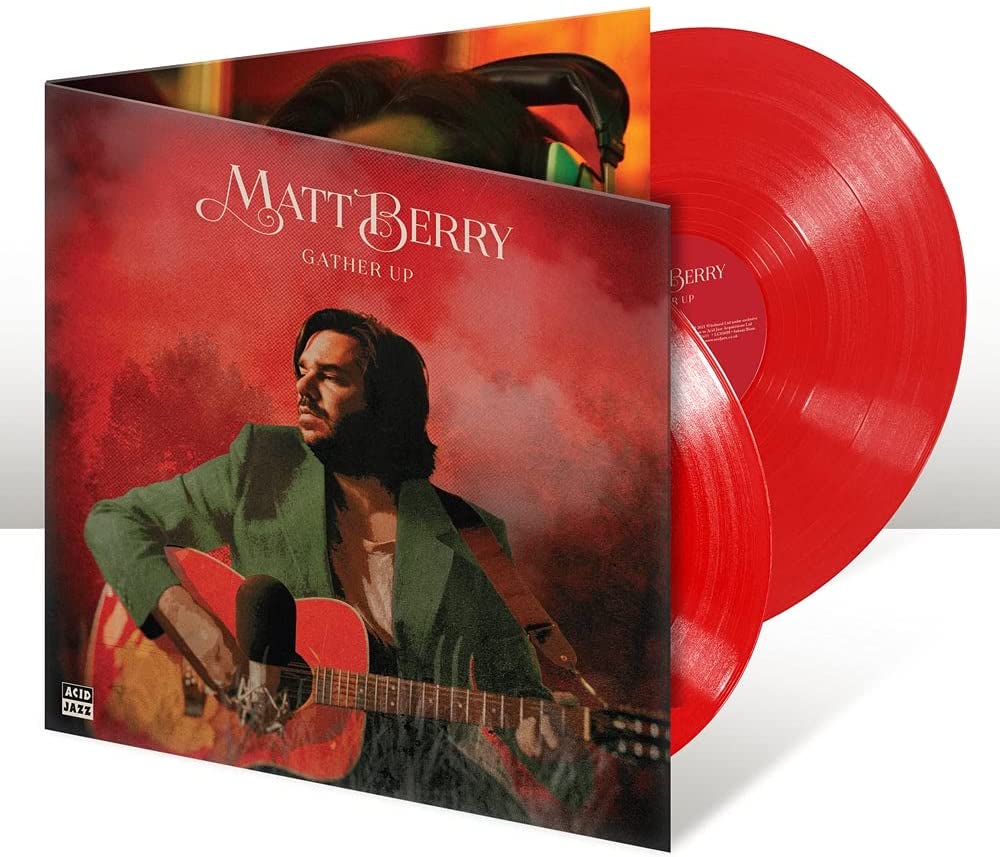
Matt Berry
gather up - 2LP red vinyl
Compare prices and pre-order

Matt Berry
gather up - single CD retrospective

|
|
||||||||||||||||||||||||||||||||||||||||||||||||||||||||||||||||||

 Interview
Interview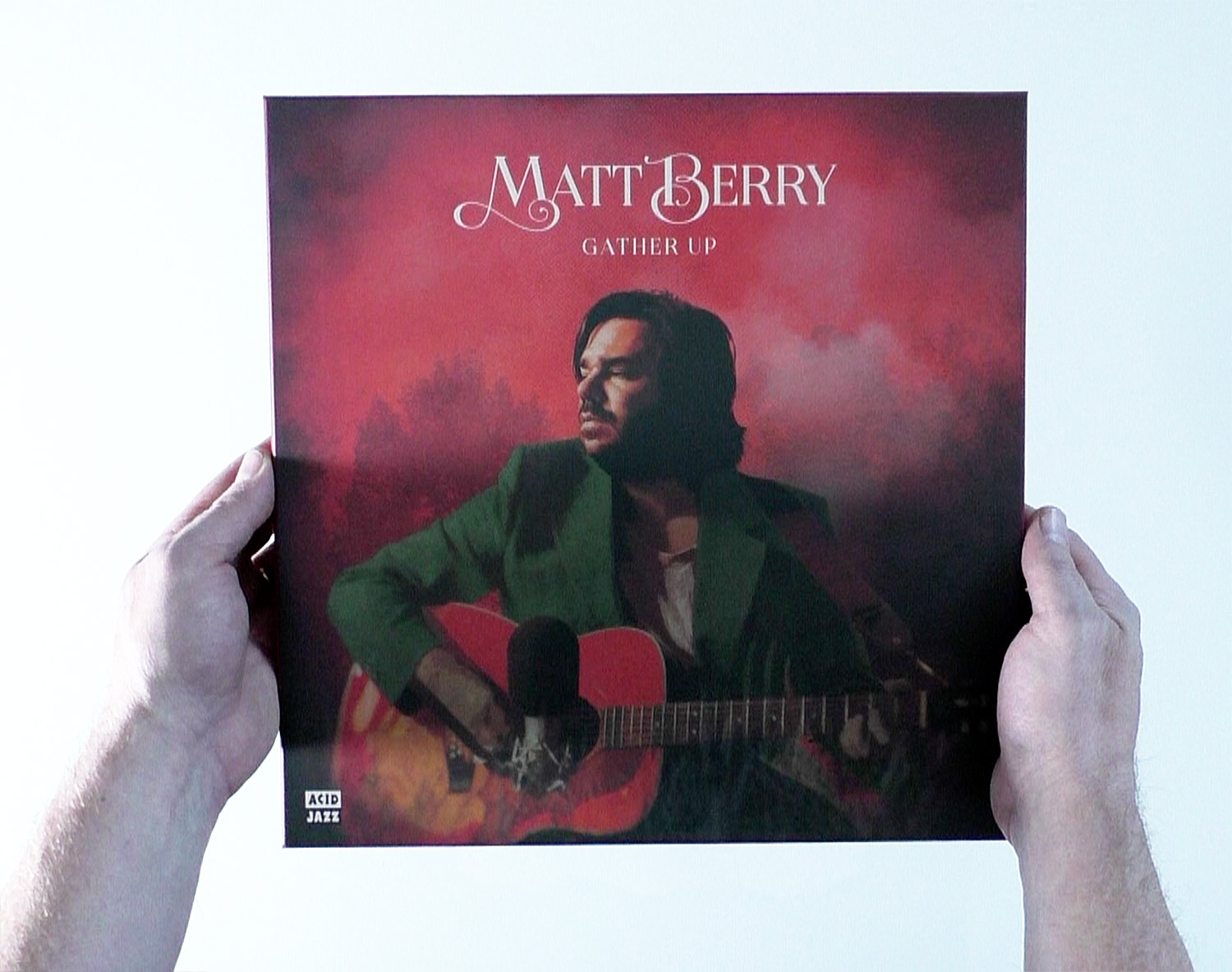
 SDEtv
SDEtv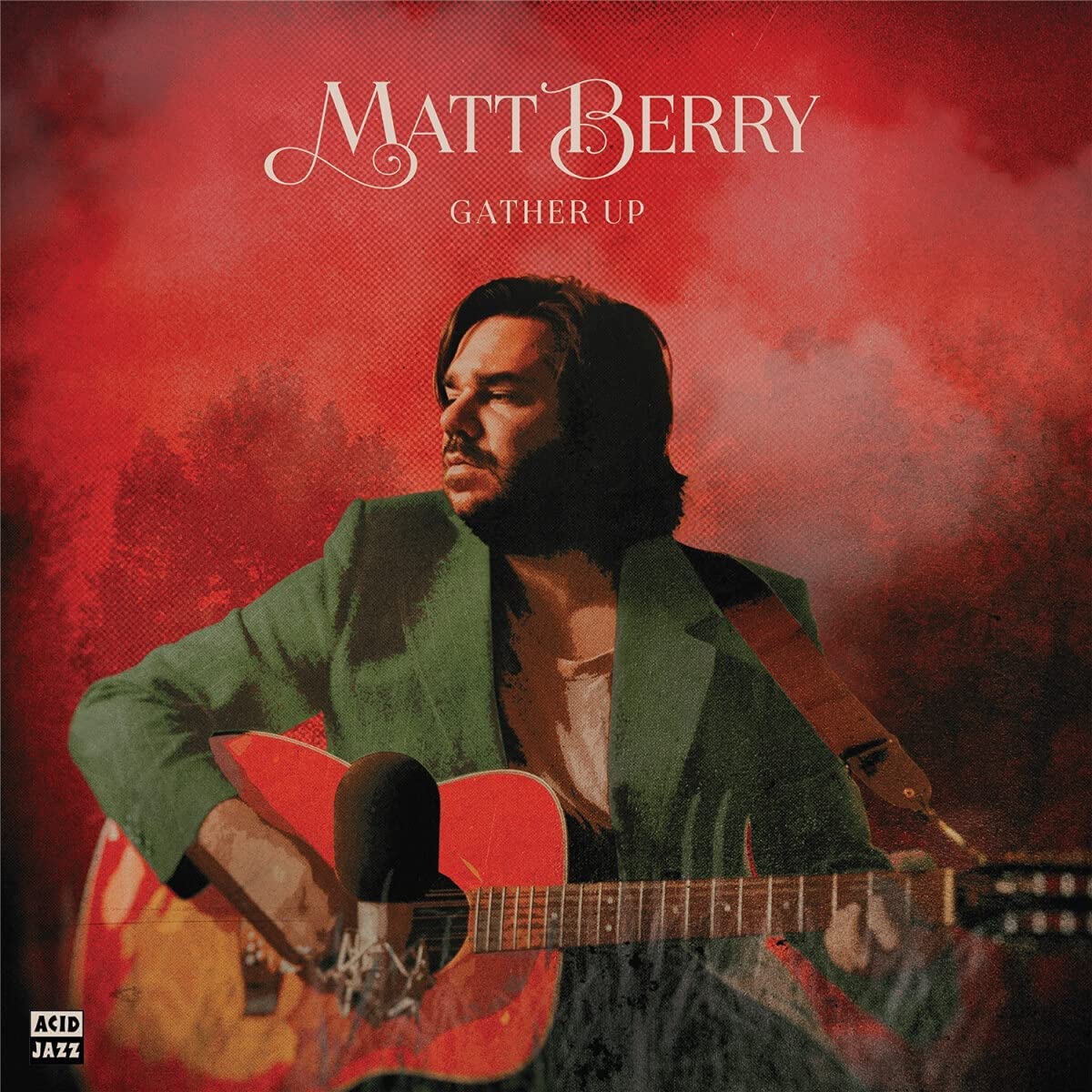
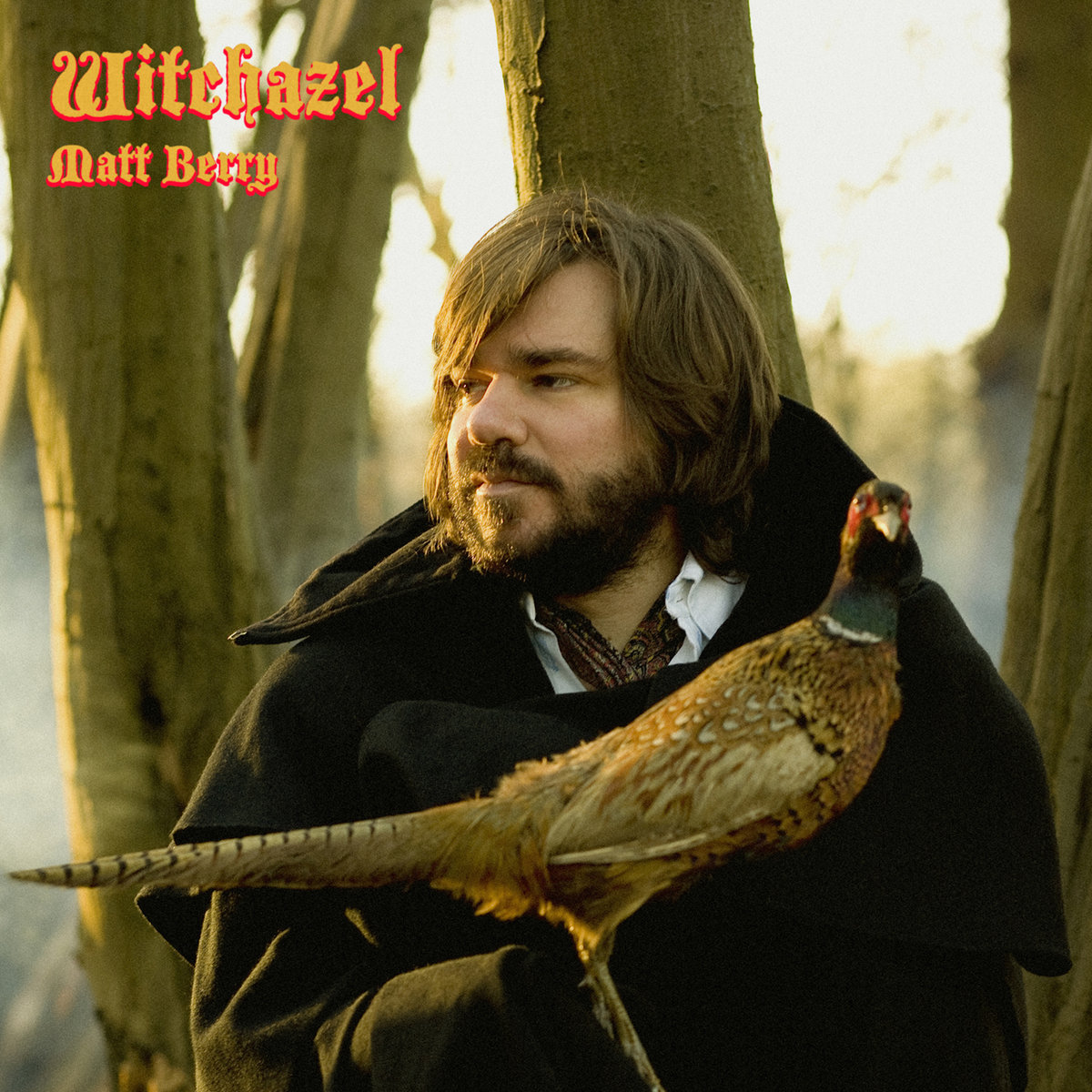
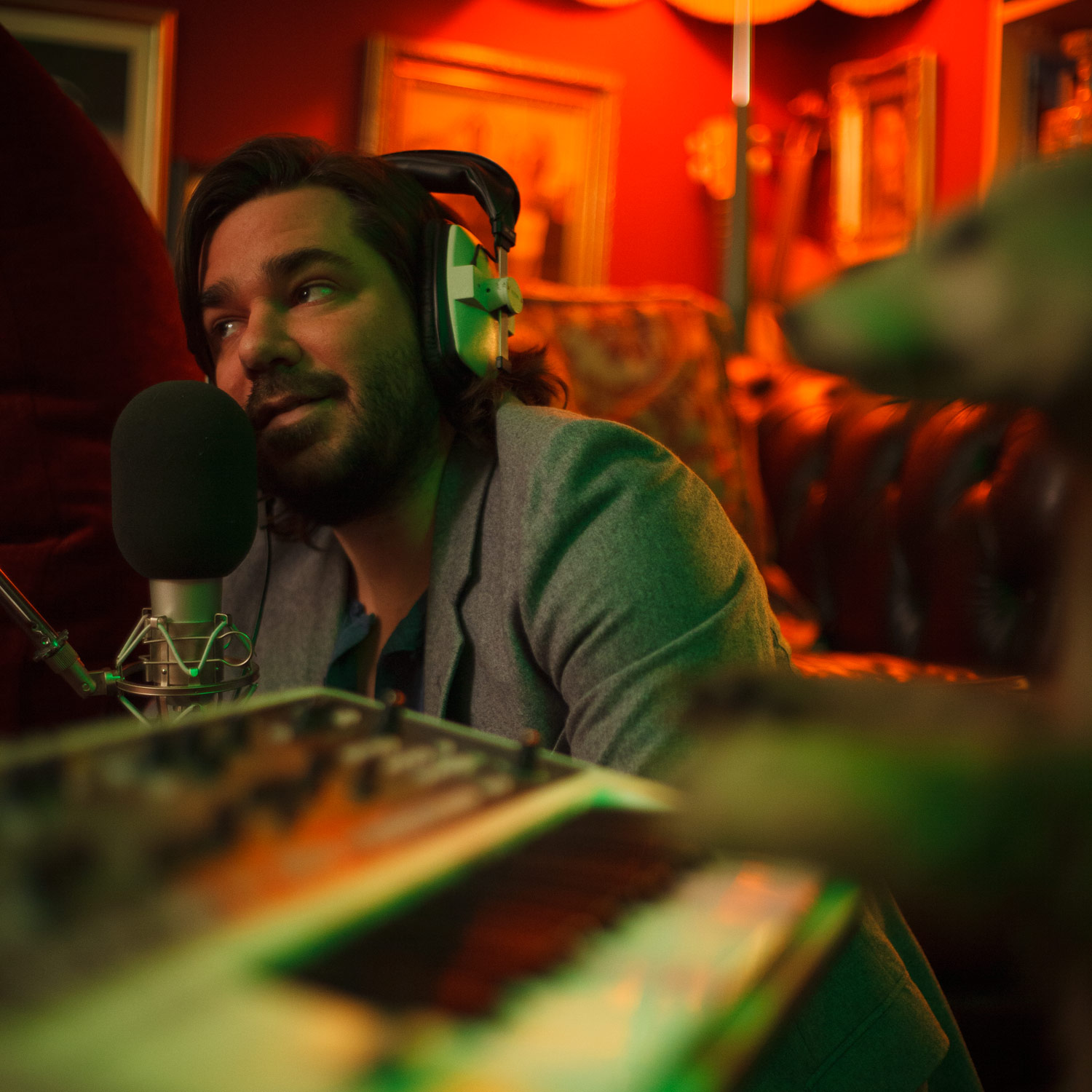
By Paul Sinclair
8